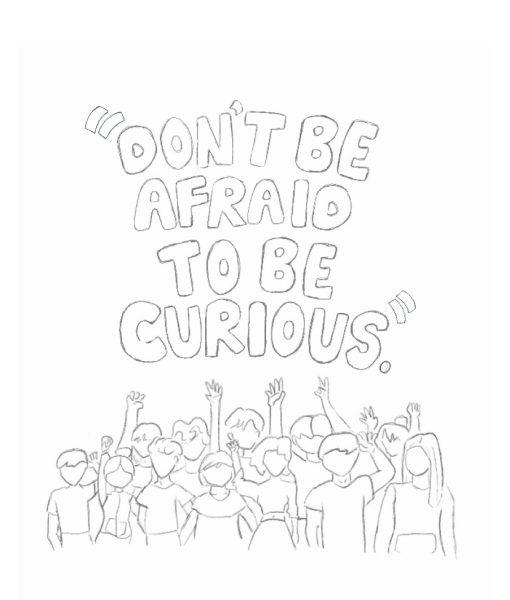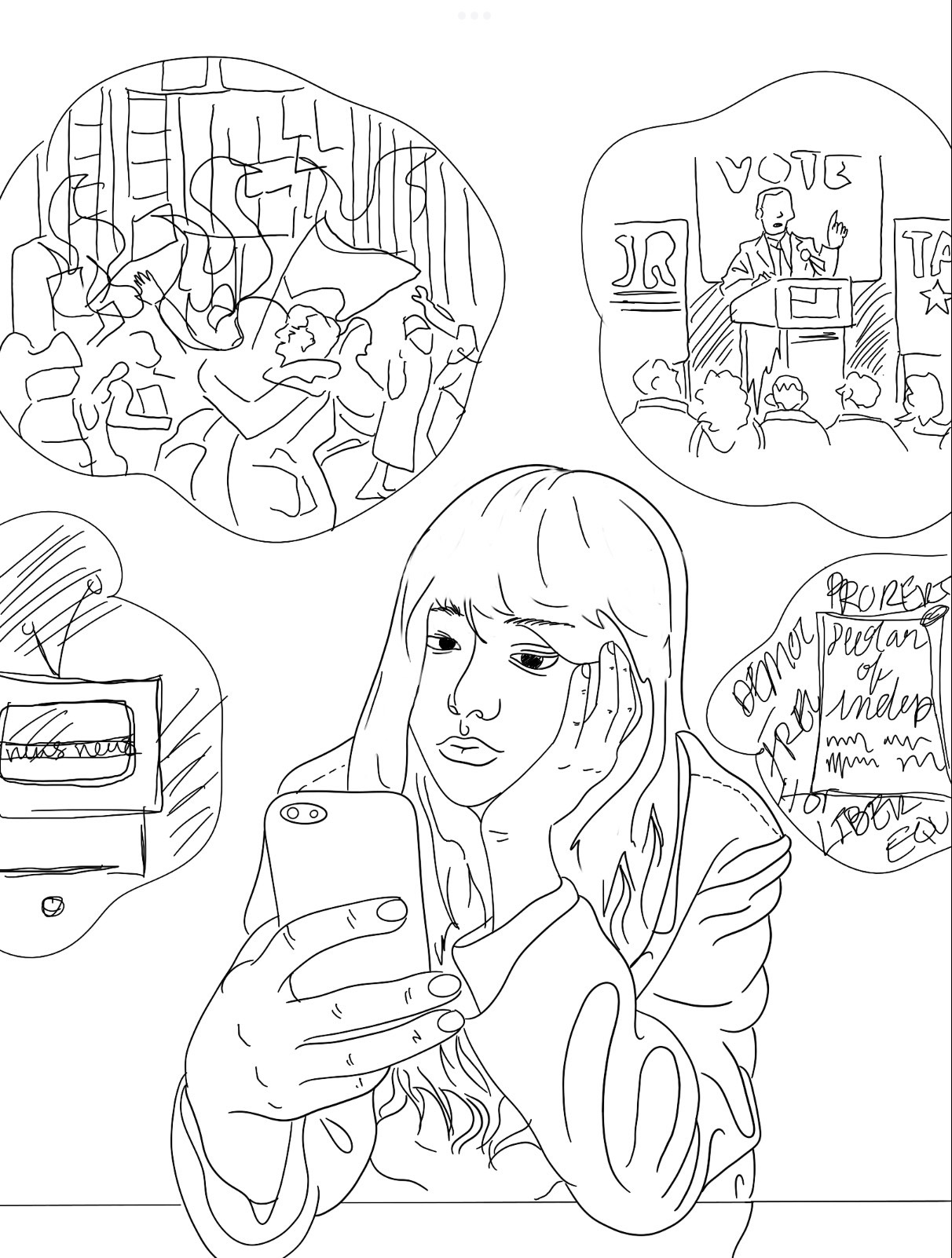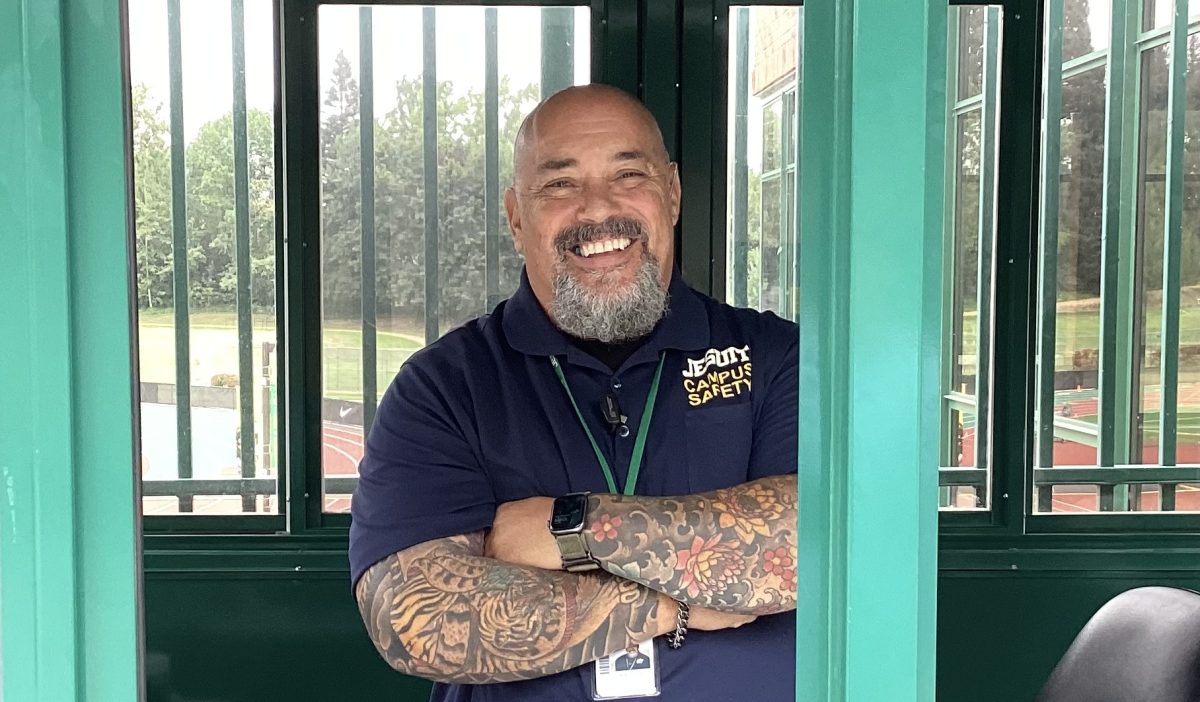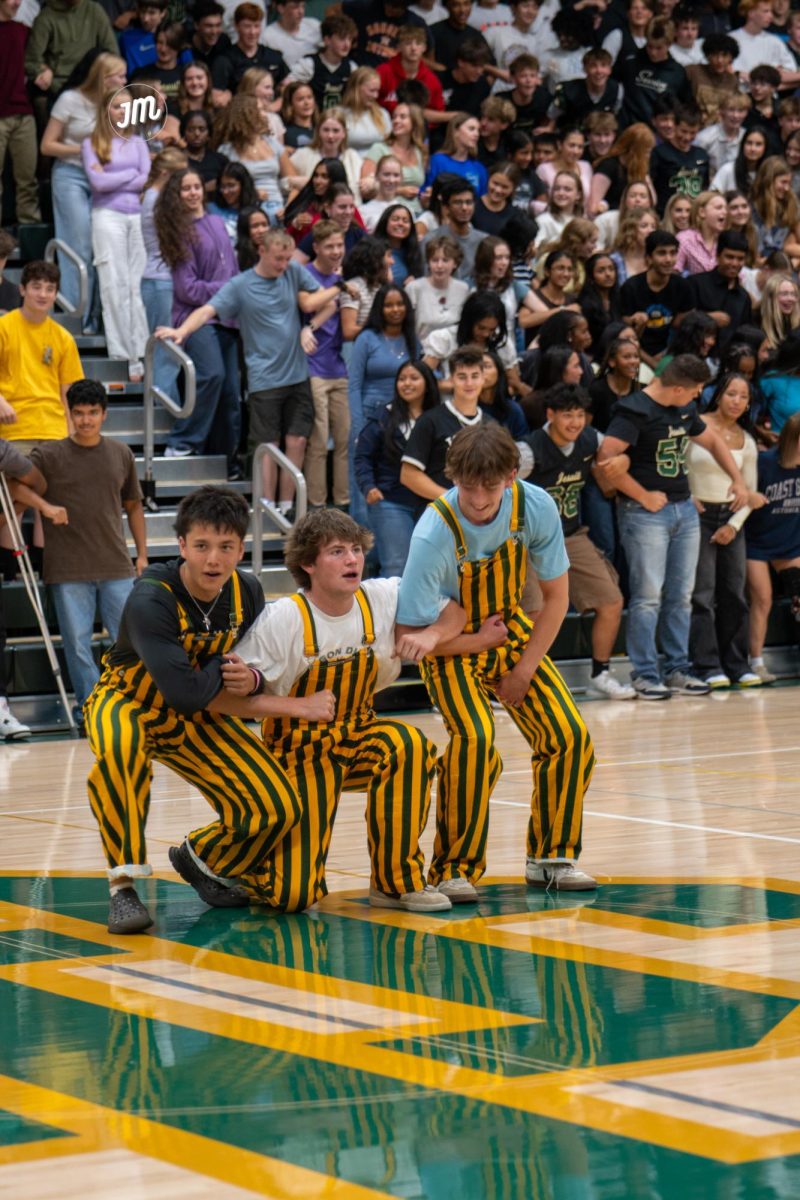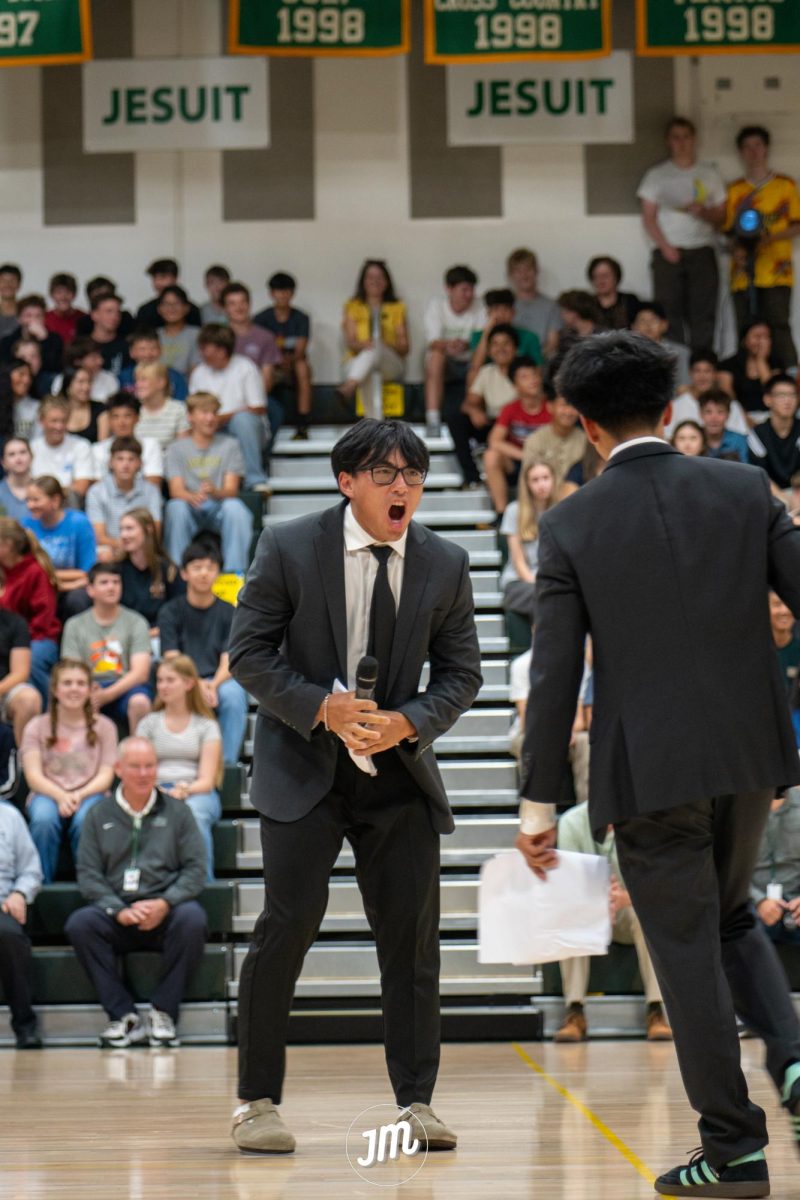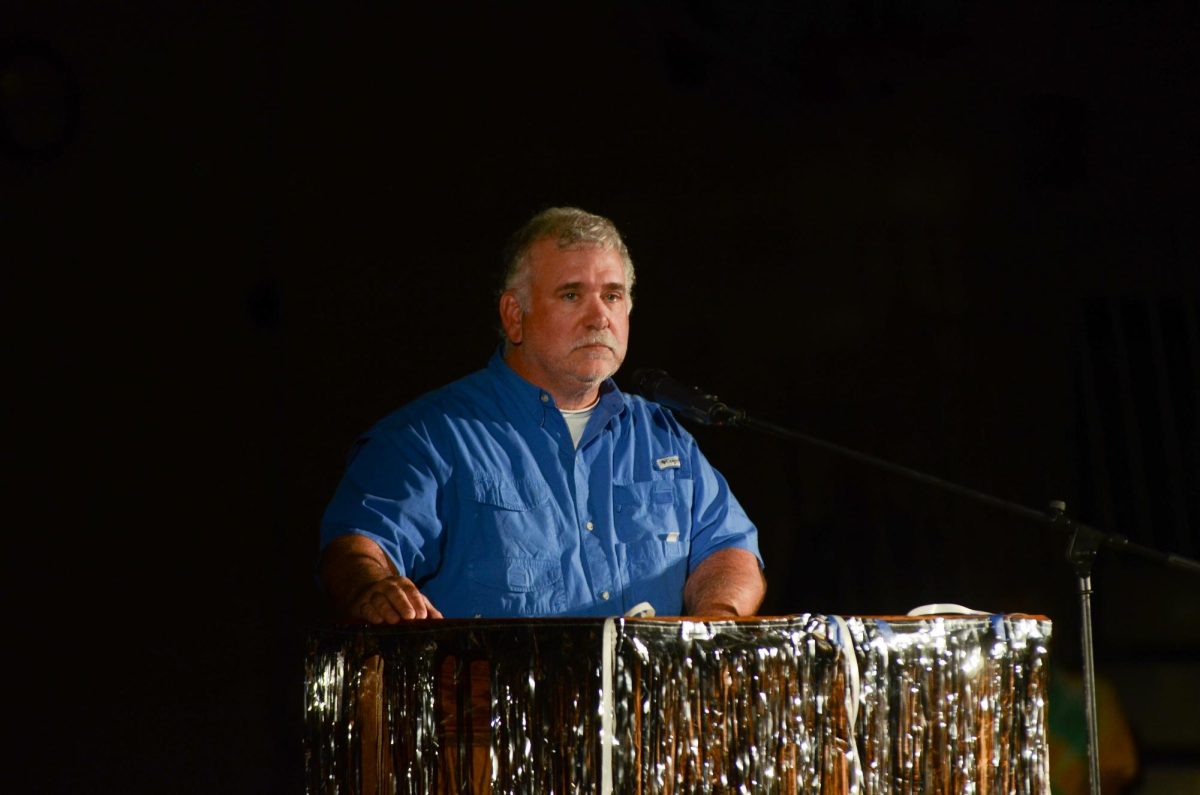If you’re a teen in this day and age, you know that moment when someone vocalizes a political opinion in class and everyone just goes quiet. It’s that split second when it feels like the room is on the edge of an explosive argument. We scan the room, our eyes asking, ‘did you hear that?’
At family dinners, coffee with friends, in the workplace, or in the classroom, there’s one topic a lot of us tend to avoid: politics. We tiptoe around it and over-analyze others to figure out their opinions.
Why?
Perhaps it’s the fear of rejection from our friends, family, and peers. Fear of our fast paced, black and white culture when we might be wrestling with our own complicated feelings about the world. Fear of someone telling us we’re wrong.
However, if we can’t feel safe to openly hold our personal beliefs at school, work, and home, then we have to make a cultural shift. After all, democracy runs on different perspectives and intellectual debate.
Mr. Flamoe currently teaches history at Jesuit, but worked for 8 years as a social worker in the foster care system before he decided to earn his teaching license. He recalls that he’s always been interested in history and political science, as well as participating in some friendly debates.
“I’ve sensed that individuals’ political views tend to be more based on their identity rather than just their intellectual views. So people, I think, are really reluctant to talk about politics, because people assume so much about who you are,” Flamoe said.
It seems that political beliefs and identity labels are being tangled up into one. This can make disagreeing over certain ideas feel a lot more personal and upsetting.
On the other hand, some people would say they’re pretty comfortable talking about politics.
Senior Addy Loomis thinks it depends on the situation.
“It depends on the people around. If it’s with my friends, I’m not going to shy away from it.”
Loomis says her friends’ political opinions vary, and that differing beliefs would not deter her from forming close relationships.
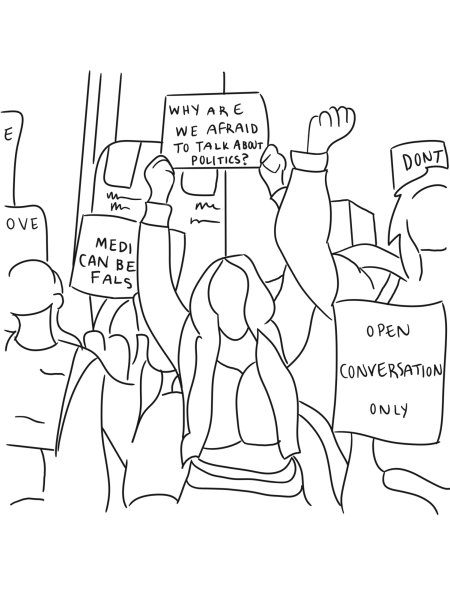
Senior Shannon Broughton, however, believes that a lot of times conversations around politics can end up being more destructive than constructive. She noted a negative interaction regarding such topics, saying, “it just kind of turned into personal attacks.” Broughton does sometimes fear being judged for her personal beliefs due to experiences like these.
Sierra Gulick ‘25 has had similar experiences of navigating arguments and frustrating conversations with friends. In her experience, conversations around politics can get heated, but if you go about it in the right way, you can have a respectful conversation with “more questions and more understanding.”
“Talking about politics can be really touchy and kind of emotional, but I think that you have to approach it with an open mind and not turn to the emotional side of things,” Gulick said.
Broughton and Gulick both understand how divided our culture is around politics, although they both have a party they identify with. At the end of the day, Broughton added, she believes everyone has good intentions for their beliefs.
”My personal philosophy is that everyone believes what they believe for good reason,” Broughton said.
Senior Jack Goldstein admits that he used to shy away from talking about politics because he found that a lot of people disagreed with him. However, in the last couple years, Goldstein has become more sure of his views.
“About a year and a half or two years ago, I really started to find my voice within my political beliefs, and started doing immense research,” Goldstein said. “I have my stances, and I stick by them, and I have a ton of evidence to back them.”
Something he notices is that, today, people tend to view politics as black and white, and not with an open mind. It can be very “challenging to share what you think” when you know you’re going to be automatically shut down. In fact, according to a Siena College poll, “of the 55% of Americans that have not spoken freely, 57% are concerned about retaliation, 65% are concerned about being harshly criticized and 94% held their tongue to avoid conflict.”
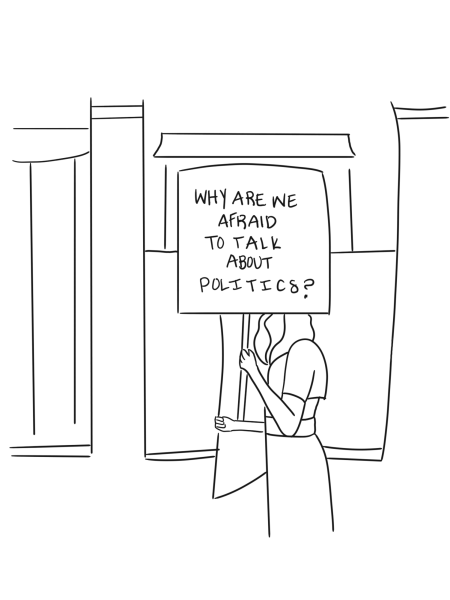
“There are some people who see politics as right and wrong, and I think that they have a closed-off world view— those tend to be destructive conversations,” Goldstein said.
However, like Gulick, he believes that political conversations can be constructive if approached in the right way, and are actually essential.
“As long as you enter these political conversations, not in an argumentative tone, but in a learner’s headset, I think these can be really beneficial conversations.”
He even finds that having relationships with people who have different opinions takes more work but are so much more meaningful.
“When you are in a relationship with someone who you disagree with politically, you care about them and you’re genuinely curious, wanting to learn more about their perspective and understanding.”
Furthermore, only having friendships with people who agree with you can actually be harmful in Goldstein’s opinion.
“We sort of feed into each other’s [views]… You see this on both sides, both the left and right: people feeding into each other’s misconceptions,” Goldstein said.
He acknowledges that political culture definitely varies based on your location and the majority population’s backgrounds. Goldstein freely admits that his Jewish heritage and culture largely influence his beliefs, though he has been judged for them.
Unfortunately, sometimes people forget that interacting with people who have different beliefs is a key component of keeping our democracy alive.
“Democracy, by definition, is people with different views compromising and finding common ground, rather than just convincing everybody else that you’re right. That’s just… learning to truly listen to what someone else is saying, rather than just trying to find a hole in their argument— but actually see the legitimacy of their perspectives,” Mr. Flamoe said.
Sometimes recognizing that, despite research you’ve done, it is not humanly possible to be all-knowing. Even with good intentions, our own perspectives can have flaws.
”I think there’s a certain amount of humility that people need to have… People should passionately hold their views, but also recognize they’re probably wrong,” Flamoe said. “Because of that, you need to really refrain from judging people who have different views, even if you find those views offensive in some kind of way. Because that’s the whole idea of being in a democracy, right?”
The point is, we’re young.
We need open eyes and open ears. We need to be wrong at least a few times before we can be right— and that certainly won’t happen in the span of our high school careers. So next time someone shares their opinion, don’t be afraid to be curious. You get to ask questions, to dig into this messy political world we live in without fear.
